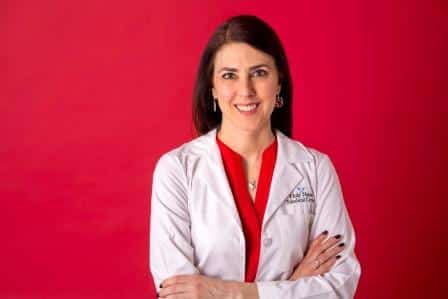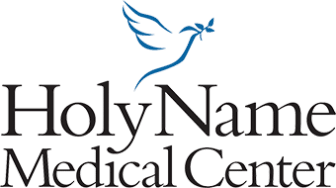Imitation is the Sincerest Form of Flattery — Especially When it Comes to Expensive Medications

Receiving a diagnosis of a serious, chronic condition can feel as though you’ve been punched in the gut. The second blow comes when you hear how much you’ve got to pay out of pocket for medication.
“Cancer and autoimmune diseases, such as multiple sclerosis and Crohn’s disease, can be treated with drugs called biologics. These are targeted, complex medications and because of this, they are very expensive,” explains Nancy Palamara, Pharm D., Director of the Pharmacy and Infusion Center at Holy Name Medical Center.
Good news: In recent years, the U.S. Food and Drug Administration has made some of the most significant drug approvals not for new biologics, but for the copycats of those already on the market. “These drugs are aptly called biosimilars because they’re an almost identical copy of the original drug,” says Nancy.
Even better news: Biosimilars cost significantly less than the original biologic, similar to how generic drugs cost less than their brand-name counterparts.
Biologics and biosimilar drugs are the result of cutting-edge biomedical research. In time, they may offer the most effective means to treat a variety of medical illnesses and conditions that currently have no other treatments available.
Are biosimilars the same thing as generic drugs?
The difference is that generic medicines are copies of simpler compounds. Biosimilars are grown with living systems, like DNA, whole cells, and tissue.
“Here’s a simple breakdown for you,” says Nancy. “When you walk down the ketchup aisle, there are 40 different brands to choose from, but at the end of the day, they’re all still ketchup. The same holds true for generic drugs.”
As the name suggests, biosimilars are similar. Think of it like this. If you grow potatoes, you know you can’t replicate an exact copy of your best potato, with the same shape, size, and taste. “All of these traits will be slightly different depending on where the potato is grown, sun exposure, etc., but at the end of the day, it’s still a potato,” explains Nancy. The same holds true for biosimilars — because they are so complex, they’re never exactly structurally identical. But the bottom line is they work the same as the original.
Biosimilars usually come as an injectable or in a solution to be administered intravenously by medical staff. They are used to treat numerous diseases, including Crohn’s disease, ulcerative colitis, and rheumatoid arthritis.
What biosimilars are currently available for breast and ovarian cancer, and what’s in the pipeline?
Biosimilar therapy may also be an option for some patients with breast and ovarian cancer. Just like the original biologics they mimic, their benefit over chemotherapy is that they cause less harm to healthy cells, so the side effects aren’t as bad.
If you have breast cancer or ovarian cancer, the type of biosimilar your doctor might recommend depends on the type of cancer. Some biosimilars use antibodies to kill cancer cells or block them from growing. Others use drugs made of small molecules to block signals the cancer cells need to grow.
Biosimilars for the breast cancer drug Herceptin® that have been FDA approved include:
- Ontruzant® (trastuzumab-dttb)
- Herzuma® (trastuzumab-pkrb)
- Ogivri® (trastuzumab-dkst)
Biosimilars approved to treat ovarian cancer:
Avastin® biosimilar:
- Mvasi™ (bevacizumab-awwb)
Neulasta® biosimilars:
- Udenyca™ (pegfilgrastim-cbqv)
- Fulphilia™ (pegfilgrastim-imdb)
Neupogen® biosimilars:
- Zarxio® (filgrastim-sndz)
- Nivestym™ (filgrastim-aafi)
Procrit® biosimilar:
- Retacrit® (epoetin alfa-epbx)
Do doctors recommend a biosimilar or does a patient need to ask for one?
“A lot of folks wonder if their physician is the decision-maker when it comes to using a biosimilar,” says Nancy. “The answer depends on a couple of factors. For one, you’re the patient, so you can absolutely ask your doctor if it’s an option that’s on the table for you.”
It may also depend, she says, on the hospital and what medications they’ve decided to use to treat these cancers. Insurance companies may also weigh in, but it’s the patient’s right to know and ask for what options are available.
What risks are associated with choosing a biosimilar?
“You may also be concerned about potential risks you may face if you choose a biosimilar drug,” says Nancy. “These drugs go through many layers of approval before going to market, so you can feel confident that biosimilar drugs are both safe and effective.”
Holy Name Medical Center is proud to be Sharsheret’s Community Healthcare Partner.
“The most important thing to know is if you’re newly diagnosed with breast or ovarian cancer, you are not alone,” says Nancy. “Whether it’s through Sharsheret’s amazing support services or Holy Name’s expert, personalized care, our teams are with you every step of the way.”
If you would like to find out more about the use of biosimilars within a treatment plan, or if you need more information on how Holy Name and Sharsheret can help you, visit holyname.org/Sharsheret and click on the Breast Services tab.
Thank you to our partners for making this blog possible:

